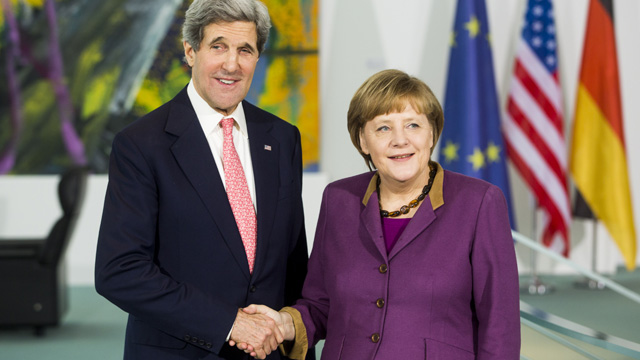
From Clara Marina O’Donnell, Real Clear World: [S]o far, the Obama administration has refused to give Russia legal guarantees. The US has made such commitments in the past. The Anti-Ballistic Missile Treaty established limits on what Moscow and Washington could do in this area from the 1970s until 2002. President George W Bush then withdrew from the agreement in order to pursue America’s missile defence ambitions unhindered. The Obama administration fears that Republican senators – who are keen on missile defence – would not ratify a treaty that would constrain the US. As a result, missile defence has become one of the most contentious issues in a troubled US-Russia relationship. Moscow has refused to negotiate further cuts in its nuclear arsenal until the issue is resolved. Last year, the chief of the General Staff of the Russian armed forces threatened to attack the European NATO countries hosting US missile defences. And according to press reports, Russian bombers have been simulating strikes against American missile defence installations.
Now that [Secretary of Defense Chuck] Hagel has cancelled the European leg of US strategic missile defences, there is a chance that NATO and Russia could end their dispute. Senior American and Russian officials have resumed talks about Russia co-operating with NATO’s missile defence efforts. US policy-makers have also been encouraging Moscow to negotiate new bilateral nuclear reductions – a top priority for President Barack Obama. According to some Russian officials, President Vladimir Putin may be open to an agreement when he meets President Obama at the G8 in June or at their bilateral summit in September. But the Russians still want legal guarantees on strategic missile defences.
Europeans welcome the possibility of improved NATO-Russia ties. Most of them have never been convinced of the need for, or feasibility of, strategic missile defences and many disliked Washington’s decision to leave the ABM treaty. Germany and others have been keen for Russia to co-operate with NATO’s missile defence programme as a way to alleviate tensions. To maximise the chances of a deal between Washington and Moscow, Europeans should now encourage their American allies to include legal guarantees on missile defence in a new nuclear arms reduction treaty with Russia. Steven Pifer and Michael O’Hanlon from the Brookings Institution point out in their book ‘The opportunity’ that treaty limits could still allow the US to deploy all its planned defences against North Korea and Iran: the US and Russia could for example agree to each having a maximum of 125 interceptors capable of engaging intercontinental missiles. (The ABM treaty initially allowed for 200.) The treaty could also be limited to ten years, so that both sides could reconsider its ceilings in light of how the threats from North Korea and Iran evolve.
The White House, and Europeans, would struggle to convince some Republican senators to ratify such a treaty. But without it, Russia is unlikely to reduce its numerous tactical nuclear weapons – an arsenal that worries both Democrats and Republicans. Europeans should also discourage their US counterparts from deploying additional interceptors against strategic missiles until tests have shown them to be effective. The risk of wasting large sums of money at a time of savage defence cuts should help senators to reassess their views on missile defence.
Clara Marina O’Donnell is a senior research fellow at the Centre for European Reform and a non-resident fellow at the Brookings Institution. (photo: Reuters)
Image: reuters%205%202%2013%20John-Kerry-and-Angela-Merkel.jpg
